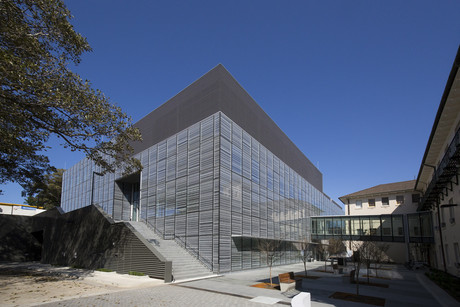Smart sensing network enables better environmental monitoring

The NSW Smart Sensing Network (NSSN), launched on Wednesday at the Sydney Nanoscience Hub (pictured), will bring together smart sensing expertise in academia, industry and government to develop a collaborative and innovative network that is expected to deliver economic and social benefits for NSW.
The $950,000 network is set to help tackle major challenges in agriculture, health, security, the environment and industry, supporting researchers working with futuristic sensing technologies ranging from mobile phone-enabled air and water sensors to skin patches for monitoring sun exposure and techniques for audio recognition of koala mating calls.
For example, air sensing research led by Professor Benjamin Eggleton (below) is expected to enable air quality monitoring more cheaply and frequently, and over smaller distances, than previously possible. While current particle size and gas readings are taken at official monitoring stations which consist of large shipping containers full of complex equipment, breakthroughs such as those achieved by Professor Eggleton could lead to smartphone-sized measuring devices.

Other projects currently underway include:
- wildlife sensing capabilities led by Dr Zhe Xu, which will monitor iconic and ecologically important species including koala populations;
- water quality research led by Dr Alex Donald, which will see the development of a palm-portable device to monitor the toxic pollutants in NSW Central Coast groundwater that led to a fishing ban;
- biomedical research led by Professor Justin Gooding, which will detect clinically important biomarkers in blood and help pioneer work into UV-sensitive skin patches and sensors;
- wearables polymer fibre light guides research led by Professor Simon Fleming, which will sense changes in the body such as the movement of bedridden patients, bandage pressure and the metrics of elite athletes.
For more information about the network, visit http://www.nssn.org.au/.
Study finds the most effective global climate policies
The study evaluated climate policies in 40 countries over a 32-year period to discover the most...
$2.4m grants to boost clean energy workforce
The funding will support innovative vocational education and training in battery technology and...
UV used to make recyclable, sustainable polymers
Scientists have used ultraviolet light to successfully synthesise more environmentally...







